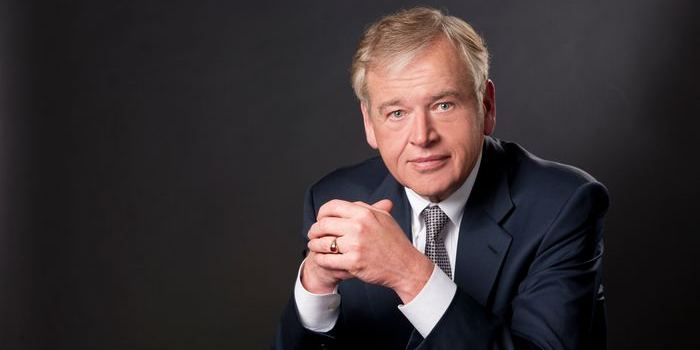 In this week’s ‘Buy-Side View’, we speak with Thanos Patsis, head of online media and mobile for betting brand Betway Group. In this interview, Patsis discusses the difficulties with asset creation for video advertising, and why a lack or regulation is preventing Betway from investing more in OTT.
In this week’s ‘Buy-Side View’, we speak with Thanos Patsis, head of online media and mobile for betting brand Betway Group. In this interview, Patsis discusses the difficulties with asset creation for video advertising, and why a lack or regulation is preventing Betway from investing more in OTT.
What is your biggest bugbear when it comes to video and OTT advertising?
The problem for us, which is very basic and is probably quite common across a lot of businesses, is the actual creation of the assets. We have a very big studio here with a lot of people, we have a creative agency in Saatchi & Saatchi, we have people in OMD which is the media agency we use, and we end up using all of them to produce all our assets across the different channels. So the flexibility of having assets on the go within the video space is always a problem, as is creating bespoke videos for social and YouTube, instead of having just cut-downs from the TV ads. We are doing some dynamic video now starting this year, which hopefully will decrease the amount of time and resources needed.
For OTT advertising specifically, one problem is the supply that is available to us, and the second is that we’re not sure how regulated these spaces are yet for gambling advertising specifically. This is a big concern for us, we need to know that they control the audience 100 percent, that they know we don’t advertise to under-18s, and that they know we can’t advertise against specific channels or shows.
How much media buying – if any – are you carrying out in-house?
We as a business do a combination of in-housing and working with agencies. We have our in-house trading desk which does media buying across all channels, and then mainly in the markets where we don’t have brand budgets and don’t have an agency we run everything in house. In the bigger, regulated markets where we can use above the line media, then we usually have an agency that runs activity for us, and we manage the agency.
Which ad tech solution has delivered the most impact for your business?
We have been through a transformation over the past year or so, so we’ve massively upscaled our ad stack. One of our main targets for this year and next is automation, we’re trying to make everything as automated as possible. As I mentioned that’s in the creative delivery, and also in predictive analytics on the media buying side of things. Programmatic and social are the two channels which are going to deliver that. So our DSPs, MediaMath and The Trade Desk, will be fundamental for our future in terms of digital media buying.
On top of this, we’ve recently on-boarded our DMP, Adobe Audience Manager. This has been a big change for us, and it’s crucial not just for delivering better results and efficiency, but also for changing attitudes in business and moving from opinions to actual data-driven advertising.
What advice would you give smaller sell-side companies to help them compete with the larger platforms?
We’re big spenders with big budgets, but compared to other players in the market we look smaller. When you have smaller budgets and a pretty similar product to your competitors, you need to be very creative in terms of media. So that’s what we’re looking for, creative solutions and transparency from the people selling media to us. It’s about how well they can understand our needs, be as transparent as possible, and deliver creative solutions to our problems.
Which do you think video advertising is the most effective for – generating awareness and brand-building, or driving short-term sales?
It depends how you use it, and what sort of creative you’re using – we’ve seen both sides working at least in some cases. So we’ve had YouTube campaigns running for a certain amount of time, and then you get the brand uplift reporting afterwards and it shows there’s been an increase in awareness. But we haven’t seen consideration increasing yet, so that’s something we’re looking at this year – how we can use video to generate and increase consideration.
So it does work, maybe on a smaller scale, for brand awareness. And then on the other side with driving sales, it has been very effective for us. It’s not direct sales, rather app installs that then lead to sales. Within the app environment, it’s been very strong.
Are you investing in OTT advertising? How will the shift towards OTT change your TV buying strategy?
Very little. The big change for us in terms of our TV strategy is changing regulation, which means we can’t spend as much on TV as we used to.
We do a little bit of OTT advertising in Germany, but it’s not that massive, so I wouldn’t say it’s changing our strategy at the moment. But again the problem is that we’re not 100 percent sure that these areas are properly regulated for us as a gambling company, so we can’t heavily invest at the moment. There are also other questions around things like attribution, but regulation is our main concern before we can even start exploring spending more on OTT.
With the subscription services, I think Netflix and the like will sooner or later introduce advertising, and then we’ll definitely look at those. But we’d need to be sure they’re properly regulated first, and that they follow the rules that apply to us.
What could brands do to help clean up the industry?
I could talk about this all day! One area is mobile app marketing fraud – there’s so much and so many types of fraud that it’s a massive issue. It’s OK on mobile web, but on mobile app it’s a massive issue. So I would say brands should be working with any vendors that are available to clean up their inventory and stop buying from fraudulent networks.
Transparency as well is always an issue, about exactly what we’re delivering and to who. So we work with people like AudienceProject to make sure that the reach we deliver is effective, and that we’re actually reaching the people that we want to. So we need to know a little bit more about what exactly is happening on the other end across all the publishers we’re working with.
Which metrics do you value the most when it comes to video and OTT advertising?
The metrics we use are fairly standard, so we look at CPVs, app-installs, and how long users are watching the videos for.
We are however doing a test at the moment with YouTube to see if there’s an uplift in wagering after users have watched YouTube ads. So once they’ve seen the ad, are they actually betting more than those who haven’t. So that’s an interesting one, to see if a video can affect someone who is already placing bets and increase their loyalty, as opposed to just bringing in new customers.
If you had £1,000,000 to spend and were forced to choose between content marketing, influencer marketing or paid advertising, which would you choose and why?
I would park influencer marketing – we haven’t done much of it. The problem we have is that influencers can’t control their audiences and make sure they’re targeting the people we want them to, so that can lead to problems with regulators.
But I’d go for paid advertising, that’s what we lean more heavily on. We do invest a lot in content, we have a large team here with our own blog, and we use it for outreach purposes as well. That helps us increase brand awareness and drive SEO value and sales. But paid is always very strong because performance is key for a betting brand like us.
Out of all the video and TV advertising campaigns you’ve been involved with, which are you most proud of?
I think the campaign we launched earlier this year called ‘The Hunch’. From the beginning it was quite sophisticated in terms of how we found the message we wanted to push and how we built the creative. It’s bringing really good results for us and helping us to scale what we’re doing now.




